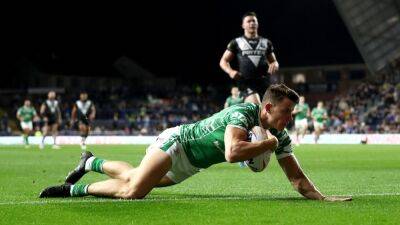The first week of the Rugby League World Cup is win-or-bust for minnows
The 16 teams that were in Manchester this week for the Rugby League World Cup launch can be divided into three groups: those here to win it; those who will be disappointed not to make the knockout stages; and those who are just loving every wide-eyed minute, knowing it will all be over in little more than a fortnight.
At the launch, stars paid a million dollars a year sat beside players unheard of outside their own squads. Famous NRL players joined Scotland boss Nathan Graham, who spends his days as an anaesthetist’s assistant, and Greece skipper Jordan Meads, who works in insurance. A few feet away was Wales captain Gareth Kear, a fireman in Bradford. This is the tournament where superstars rub shoulders with guys who work down the chip shop.
The comfortingly familiar 16-team format is vastly more satisfying than the deeply flawed 10- and 14-team formats of the last three World Cups, but the downside is that most groups are hugely predictable. Only Group C – which contains New Zealand, Ireland, Lebanon and Jamaica – looks to have any real jeopardy: could Mitchell Moses lead Lebanon, under Argentina RFU coach Michael Chieka, to second place behind New Zealand? To do so they would have to finish above a new-look Ireland side that has NRL and Super League stars Luke Keary and Richie Myler at its creative heart.
Credit where it’s due: by pairing the top seeds in the opening fixture of each group, the organisers have done all they can to reduce the number of dead rubbers in the final round of group fixtures. The drawback is, by the time the opening set of games is over, we should be able to predict not only who is going to win each group but also which teams are heading home on 1 November.
By Sunday night we can assume that,



